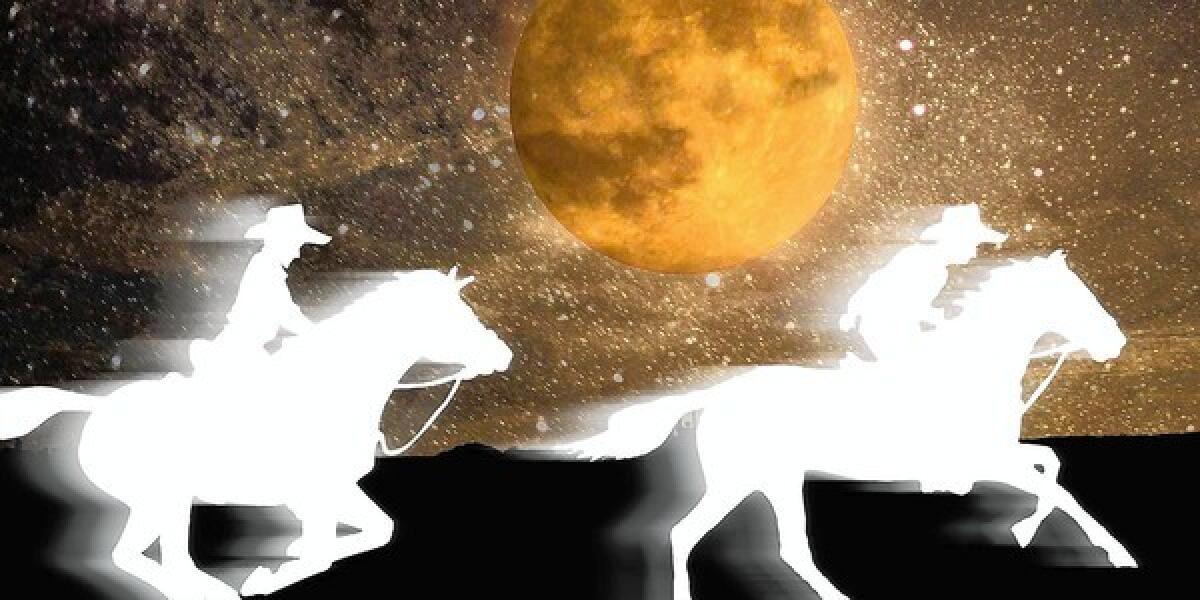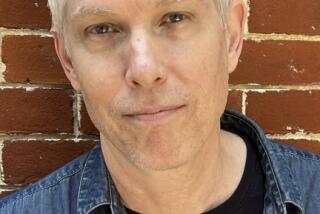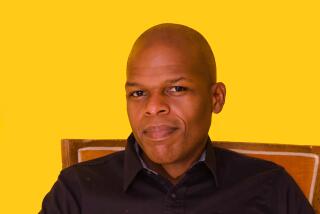Book review: ‘The Wake of Forgiveness’ by Bruce Machart

The Wake of Forgiveness
A Novel
Bruce Machart
Houghton Mifflin Harcourt: 310 pp., $26
Lavaca County, Texas — one moment it’s a place you’ve never been, the next it’s a place you can’t forget, a place that comes to mind when you call yourself American, even if you grew up on a tree-lined street in Connecticut. What happened? Same thing that happens when you read Willa Cather, William Faulkner or Cormac McCarthy. How else could you possibly know what the wind in the pecan trees sounds like, what mesquite smells like or how fast-moving clouds can make a person feel particularly small and helpless?
Yet Bruce Machart’s “The Wake of Forgiveness” is also Greek tragedy, art based on universal human suffering, joy and pain. It is an extraordinary novel in which the characters are watched and not just by their author or their readers. The clouds in the dramatic Texas sky beat out the time; the trees look down on the action and pronounce their moral judgments, and the moon, well, the moon holds the long view. The moon in so many scenes is the calm, the wise antidote to the crazy human drama unfolding below. It is a rare novel that makes a reader feel he has fallen through a crack in the earth and is swimming in the subconscious aquifer. How did he do it?
This is Machart’s (pronounced Mah-heart) first novel (a collection of stories called “Men in the Making” arrives next year). He teaches English at Lone Star College in Houston, and his work has been published in leading literary magazines: Story, Glimmer Train and Zoetrope. It is clear he is in it for the long haul. This is pure literature; an emphasis on language over plot; risky, complex and often unlikable characters and that echo, that ripple that flows forward into the future and backward into myth.
As in Greek tragedy, Machart has an eye for the moments in which fate turns, lives change, regret is not yet a glimmer in a character’s eye. “The Wake of Forgiveness” begins on such a moment. Vaclav Skala, a Czech immigrant and farmer in Lavaca County, wakes on a February morning in 1895 covered in his wife’s blood. The baby, Karel, their fourth son, is born, but his wife, Klara, dies in childbirth. Vaclav reverts to the violent rage, his former state of equilibrium, that will shape the lives of his sons and for all we know generations of Skalas to come. The boys are raised, “bereft of the feminine tenderness that, to young boys, is nothing shy of sustenance.” We see the world through Karel’s eyes for the 30 years of the novel.
The most important thing in Lavaca County is land and, after that, horses. Vaclav, full of bitterness, cares more for his horses than his sons, who grow up literally yoked to the plough, working their father’s vast acreage. It is never enough. Vaclav bets a few hundred acres on a horse race with his Scots-Irish neighbor, Patrick Dalton. Karel rides — he cheats as instructed by his father and wins. But when a wealthy Mexican rancher named Villaseñor moves to the area, starts buying up land and offers his daughters, including the beautiful Graciela, as brides for the Skala boys, the real tragedy begins. Vaclav at first refuses, but he cannot resist a horse race: If he loses, his three oldest boys will marry Villaseñor’s three daughters and 600 acres will go to the new families. Karel will stay behind with his father.
These midnight races are dark paintings — flickering firelight, the low moon and the sound of a pistol shot: “the sky hangs swollen and sickly above the distant horizon as if the whole mass of the heavens has been wounded and gauzed with clouds and backlit feebly by the diminishing moon.” Machart becomes some kind of enormous, sensory radar, picking up the sound of twigs as they fall through the blackjack oaks, the cries of possums carried off by barred owls, the smell of lavender and beeswax in Graciela Villaseñor’s hair, the boll weevils in the cotton, the way a foot slides into the stirrup. We are inside Karel’s consciousness as he rides the race — all the night sounds and also the idea of his mother: “he can’t help now but imagine himself curled up and floating inside her, his blood an extension of hers … his heart beating only so long as hers refuses to stop.” The moon “slips out brightly from the clouds just long enough to oversee the goings-on below, and when it ducks back under cover there comes, from out north in the pastures beyond the creek, a sound like slow-tearing parchment that grows steadily louder in its approach. This is a rainfall that will defy the almanac….”
In the aftermath of the race, Karel stands, beaten, and in love with Graciela, who will be married to his brother. It is a familiar story — brother against brother, sons against fathers. Rage taken out on the animals and the women, revenge taken if not in this generation, in the next. But Machart brings a richness of language to the story. It echoes from the novel outward. Time shudders and jumps — 1895 to 1910, to 1924 and back. “[A]ll that’s left is the caustic certainty that there’s no moving forward unbridled, that the weather-checked harness will never give, that the weight of all that is dragging behind will know no abatement.”
For all the lyrical language, know that the action does not stop. Almost all of it is in the wrong direction, as though gravity had been replaced by violence. And yet the novel is not predictable. With all this omniscience, all the ingredients of tragedy, the reader does not know who will die, who will be the human sacrifice. “A horned owl, banking now with a wing dipped vertically, arcing across the pasture and leveling off again, gliding out toward the running horses in search of field mice or nesting coveys of quail or a young opossum lagging too far behind its mother.” Fate may unwind the story, but it is the small, graceful moments that will alter its course.
Salter Reynolds is a writer in Los Angeles.
More to Read
The biggest entertainment stories
Get our big stories about Hollywood, film, television, music, arts, culture and more right in your inbox as soon as they publish.
You may occasionally receive promotional content from the Los Angeles Times.





